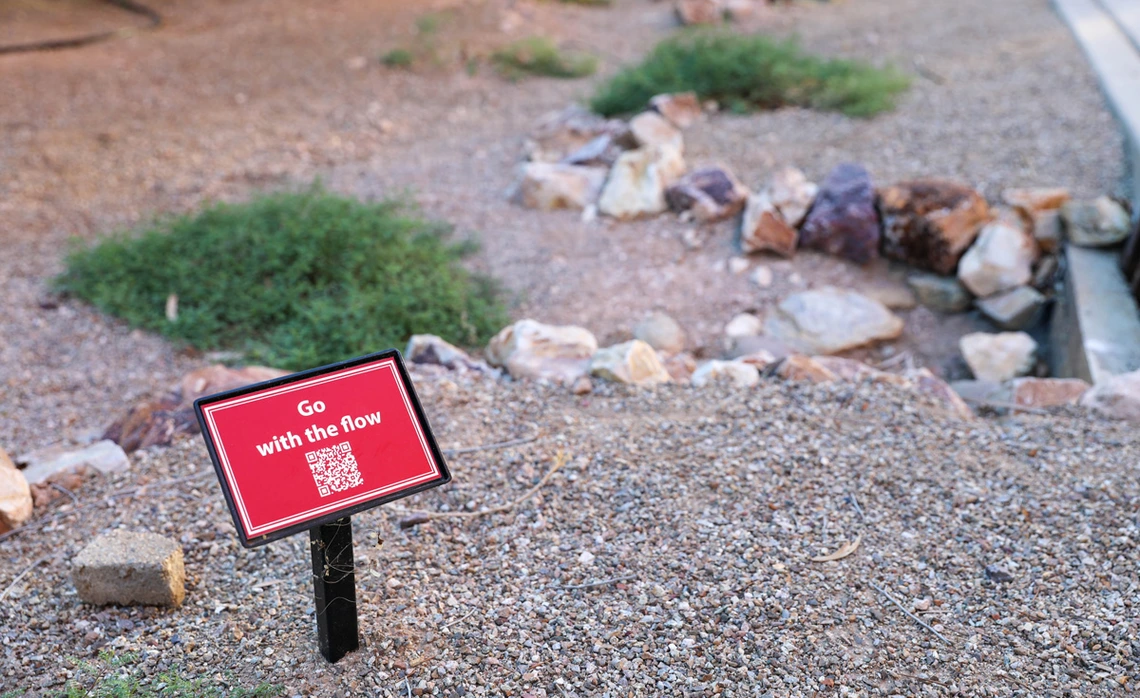
When
Speaker(s)
Writing Indigenous Water Stories
Although there are 22 Tribal Nations in Arizona, most people don't know about their deep cultural and spiritual connections to water. Furthermore, Indigenous communities have some of the highest rates of water insecurity. The project sought to connect the water stories of Native American communities with broad public concerns about water access and health and aimed to inspire new ideas and solutions for water issues in Arizona. Students and community members received training through The OpEd Project to research, write, and publish opinion pieces (op-eds) for local and Tribal news outlets. They also gathered weekly for a course on research development and writing support. These op-eds seek to raise awareness of water challenges and share knowledge from both Indigenous and scientific perspectives. The students gained valuable skills, and their work will help inform water policies and public discussions for a sustainable water future. By combining personal stories with data, the op-eds make water issues more relatable and inclusive, highlight the voices of communities that have been left out of water policy conversations, and encourage fairer water distribution and use across the state.

Ame Min-Venditti's work is situated at the nexus of political ecology, critical geography, and environmental human sciences. During their PhD studies, they have come to study Indigenous knowledges, power, values, and trauma and how they relate to water narratives and relations with water in a changing climate. Min-Venditti employs an action research framework and has collaborated with communities in resistance across continents. As a doctoral student at ASU, they have crossed disciplinary thresholds to immerse themselves in social work, transborder studies, and human communication. Min-Venditti has worked on two collective embodiment projects, as well as an art and sustainability water conservation social media campaign.

Angelina Mann is an undergraduate student double majoring in English (Creative Writing) and Spanish Literature and Culture, with a minor in American Indian Studies at ASU.
Green Infrastructure's Impact: Urban Rainwater Garden Influences on Semi-Arid Soil Health
Nature-based solutions like green infrastructure (GI) are argued to reduce climatic and anthropogenic pressures in urban environments suffering from environmental degradation, in addition to restoring ecosystem functioning and resilience. While there are many benefits derived from GI, this project focused on enhanced soil health. At three locations, the project team sampled rain garden basins soils across semi-arid Tucson during the pre- and post-monsoon seasons. The team analyzed soil health correlations as well as the influence of seasonal precipitation regimes, GI treatments, and site location on indicators of physical, biological, and chemical soil health properties. They hypothesized that variations in soil health indicators would be discernible across various seasonal regime inputs, treatments, and sites. Results showed that biological and chemical indicators drove significant variation in overall soil health. Seasonal precipitation regimes significantly influenced biological indicators, while GI treatments only influenced change in carbon stabilization and decomposition, suggesting that rain gardens are regulators of soil nutrient cycling and respiration. Site effects strongly influenced differences in all three component soil health properties, highlighting the importance of site land management impacts. Though newly introduced indicators of soil health proved feasible, more research should be granted to better interpret their role and solidify their induction.

Phoenix Spivey earned a bachelor's degree in Environmental Science in 2020 from North Carolina State University and worked in conservation. To deepen her knowledge of nature-based solutions, she pursued a master's degree at the University of Arizona (U of A), with a focus on green infrastructure (GI). She researched rain garden basins and their impact on semi-arid soil health in Tucson, AZ, under the mentorship of Laura Meredith, Associate Professor, and Vanessa Buzzard, Senior Research Specialist, both at the U of A School of Natural Resources and the Environment. Spivey’s work emphasizes the value of GI in addressing climate change and human impacts.

Vanessa Buzzard is a research scientist in the School of Natural Resources and the Environment at the University of Arizona. Dr. Buzzard’s research has focused on understanding drivers of biodiversity and ecosystem function in response to climate and anthropogenic disturbances in natural and built environments. Her research aims to quantify shifts in physical, chemical, and biological soil health indicators in response to green stormwater infrastructure practices to understand restoration of ecosystem functions and co-benefits generated by stormwater capture and reuse. She is also the founder of the University of Arizona’s Campus Living Lab in Green Stormwater Infrastructure, an initiative to bridge understanding across disciplines studying the performance of green stormwater infrastructure in Tucson AZ.

